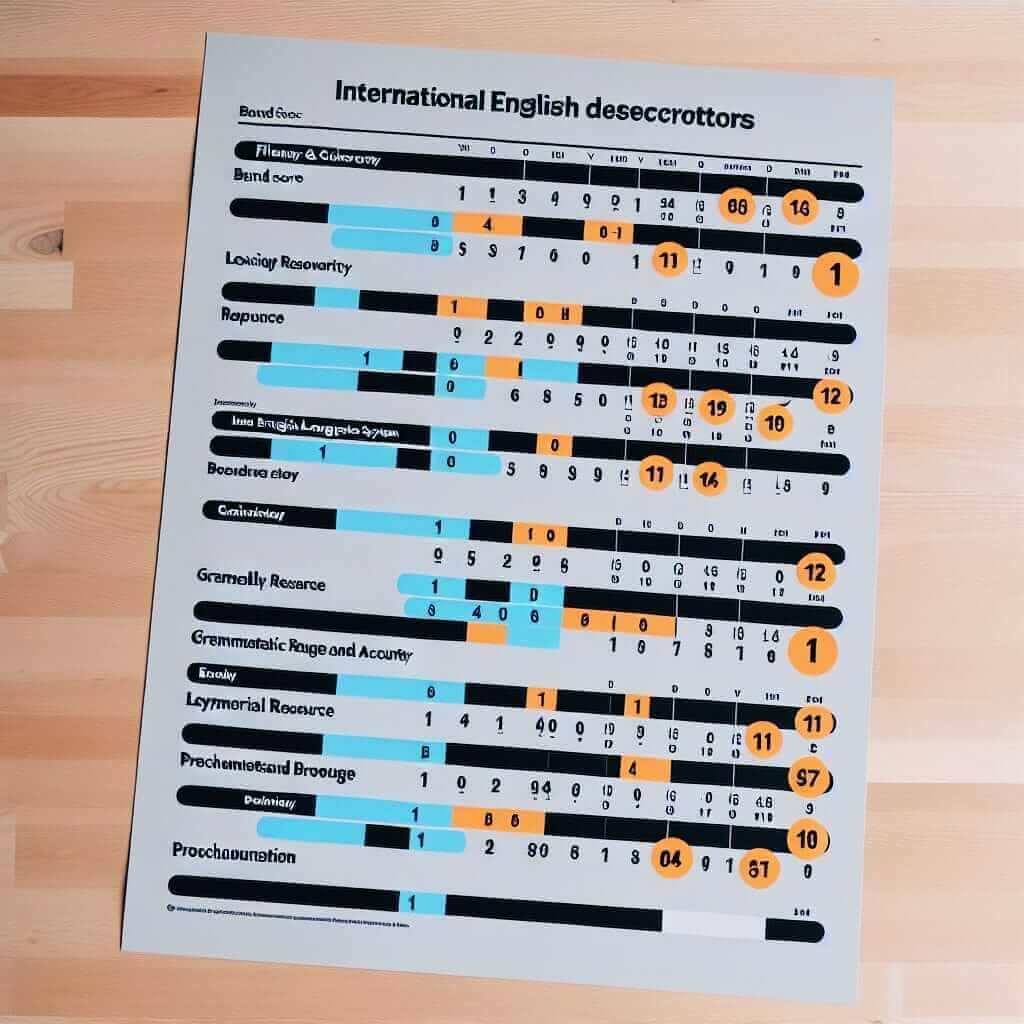The IELTS Speaking test, while seemingly straightforward, often leaves candidates feeling anxious. Achieving a band 9, the highest possible score, is a testament to exceptional English proficiency and communication skills. While the journey to a 9 is unique for everyone, there are common threads, strategies, and mindsets that pave the way for success. As an IELTS tutor with over 20 years of experience, I’ve witnessed firsthand the dedication and smart work that lead to outstanding results. This article delves into the core elements of a band 9 Speaking performance, providing you with actionable insights and techniques to elevate your own IELTS journey.
Understanding the IELTS Speaking Band Descriptors
Before diving into strategies, it’s crucial to understand what examiners look for. The IELTS Speaking band descriptors outline the criteria for each band score. For band 9, these include:
- Fluency and Coherence: Speaking effortlessly, with ideas logically connected and minimal hesitation.
- Lexical Resource: Using a wide range of vocabulary accurately and naturally, showcasing idiomatic language and avoiding repetition.
- Grammatical Range and Accuracy: Employing a variety of complex grammatical structures with a high degree of accuracy.
- Pronunciation: Speaking clearly with natural intonation, stress, and rhythm, ensuring effortless understanding.
Mastering the Art of Fluency and Coherence
- Think in English: Avoid mental translation. Practice thinking directly in English to enhance your spontaneity and flow.
- Connectives are Key: Utilize a diverse range of discourse markers (e.g., furthermore, however, in addition) to link your ideas smoothly and logically.
- Develop Your Ideas: Don’t just provide one-sentence answers. Elaborate on your thoughts, provide examples, and justify your opinions.
Expanding Your Lexical Resource
- Read Widely: Immerse yourself in English texts – novels, newspapers, academic articles – to encounter new vocabulary in context.
- Record and Review: Practice speaking on various IELTS topics, record yourself, and analyze your vocabulary use. Identify areas for improvement and actively seek out synonyms and more sophisticated expressions.
- Idioms and Collocations: Incorporate idiomatic language and collocations (words that commonly go together) to demonstrate natural and sophisticated language use. For instance, instead of saying “very big problem,” you could say “a major issue” or “a pressing concern.”
Perfecting Grammatical Range and Accuracy
- Know Your Tenses: Ensure mastery of all English tenses and practice using them accurately in different contexts.
- Complex Structures: Don’t be afraid to utilize a range of grammatical structures, such as conditional sentences, relative clauses, and passive voice, where appropriate.
- Error Correction: Identify your common grammatical errors and dedicate time to practice and self-correction.
Refining Your Pronunciation
- Listen Actively: Engage with native English speakers through podcasts, movies, or conversations to familiarize yourself with natural intonation and rhythm.
- Record and Analyze: Record yourself speaking and pay close attention to your pronunciation, intonation, and stress patterns.
- Minimal Pairs Practice: Practice distinguishing between easily confused sounds (e.g., ship/sheep, leave/live).

Sample IELTS Speaking Test and Analysis
Let’s analyze a sample IELTS Speaking Part 2 question and response to illustrate these principles:
Describe a time you had to use your imagination.
Candidate Response:
“One time, I had to use my imagination was when I was a child. My brother and I would build forts in our living room. We used blankets and pillows and anything we could find. We pretended we were explorers in a jungle. It was so much fun! “
Analysis:
While grammatically correct and understandable, this response lacks the depth and complexity expected for a band 9. Let’s enhance it:
Improved Response:
“A vivid childhood memory that truly exemplifies my imaginative spirit involves my brother and me transforming our ordinary living room into an uncharted jungle. We’d meticulously drape blankets over furniture, creating a labyrinthine fortress. Pillows were scattered about, serving as treacherous boulders, while the rug beneath us was magically transformed into a flowing river teeming with imaginary creatures. We wholeheartedly embraced our roles as intrepid explorers, navigating perilous terrains and encountering exotic wildlife, all within the confines of our humble abode.”
Key Improvements:
- Enhanced Vocabulary: “Exemplifies,” “meticulously,” “labyrinthine,” “treacherous,” “transformed,” “intrepid,” “perilous,” “exotic” replace simpler words, showcasing a wider range of vocabulary.
- Complex Grammar: Use of a relative clause (“that truly exemplifies my imaginative spirit”) and present participles (“creating,” “serving”) adds grammatical complexity.
- Vivid Description: Sensory details (“flowing river,” “imaginary creatures”) and figurative language (“magically transformed”) create a more engaging and imaginative response.
Final Tips for Success
- Practice Regularly: Consistent practice is paramount. Engage in mock speaking tests, record yourself, and actively analyze your performance.
- Seek Feedback: Request feedback from experienced IELTS tutors or native English speakers to identify areas for improvement.
- Stay Calm and Confident: On exam day, approach the speaking test with a positive mindset and showcase your language skills to the best of your ability. Remember, the examiner is there to facilitate your performance, not to intimidate you.
Achieving a band 9 in IELTS Speaking requires dedication, strategy, and a genuine love for the English language. By focusing on fluency, expanding your vocabulary, mastering grammar, and refining your pronunciation, you’ll be well on your way to achieving your desired score. Best of luck on your IELTS journey!